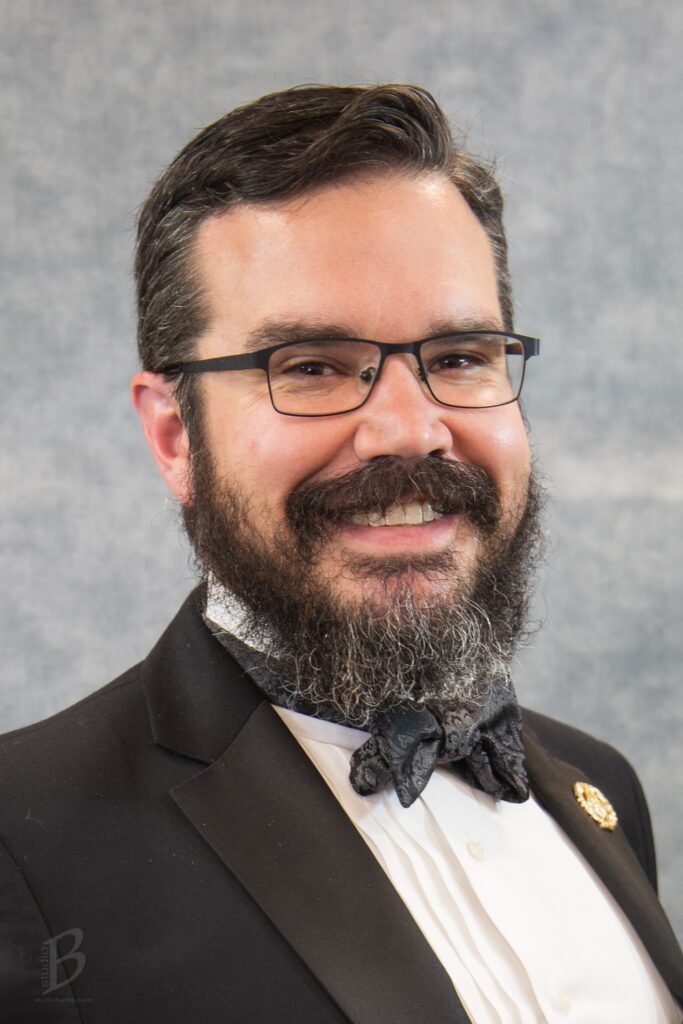Grace and Brotherly Love
By: Alex Cosby
Senior Grand Deacon
Brethren of the State of New Mexico, thank you for taking the time to read this, or at least papering cat litter boxes with it.

In either case, I feel like we’ve bettered the world in some small way by our interaction. Nominally, this is an introduction or a bio; but I’m bad at talking about myself, and if we haven’t met yet, I’ll save the disappointment until we can be face to face.
Instead, I’d like to take this opportunity to juxtapose a quote that I love with a behavior that I loathe. The quote is from Friedrich Nietzsche: “The great periods of our life occur when we gain the courage to rechristen what is bad about us as what is best.” It’s a fun little quote. Each of us has weaknesses, faults, flaws: things we are ashamed of, embarrassed about, or that we hate in ourselves. These little private shames are things we take great care to hide from the world, often only hinting at their existence when we see something resembling them in others. Instead of hiding, we should get to know ourselves; warts and all. Learn to love your faults, find the grace to forgive yourself. There is great power in embracing vulnerability.
On to the behavior: each of us has sat in lodge and watched some brother, usually a well-respected pillar of their lodge, publicly embarrass another brother due to their performance of ritual. Many evenings, in many lodges, the same scene unfolds: a brother misses a step, carries a rod wrong, skips a sentence; and immediately someone points it out for the whole lodge to know. I’ve never seen it result in a positive outcome, just bitterness and shame.
I can’t help but feel that the quote and the behavior are somehow related. It seems to me that, perhaps, the brethren so eager to announce the failing of their brothers in lodge must see a shadow of their own weakness and frailties. The shame they hide lashes out to avoid the awkward inward gaze of their own conscious mind. Perhaps I’m reading too much into it, perhaps those brothers, learned and self-righteous, are just unaware that their behavior doesn’t correct; that it mocks when their brother most needs aid, that it chases fine men off, that it destroys lodges. Perhaps, rather than a complex psychological game, all I am observing is petty nastiness that delights in the look of stooped shoulders and stung pride.
I hope not. I’d like to think better of our learned brethren.
In any case, I’d like to invite all of you reading this to take a good, gentle look inside yourself. Get to know those parts of you that hide inside, that feel weak or ashamed. We all have them; if you think you don’t, I’ll loan you some of mine. Getting to know them is the first step to making peace with them. Making peace with our own weakness is a wonderful practice that, at least in my own experience, leads to making peace with the things I want to judge in others. I’m still working at it, but I encourage any brother who feels the need to call attention to another man’s failings in lodge to bite your tongue and instead use that urge as a cue to look at yourself. Then, after lodge, when the shame has passed, counsel the brother in private.
